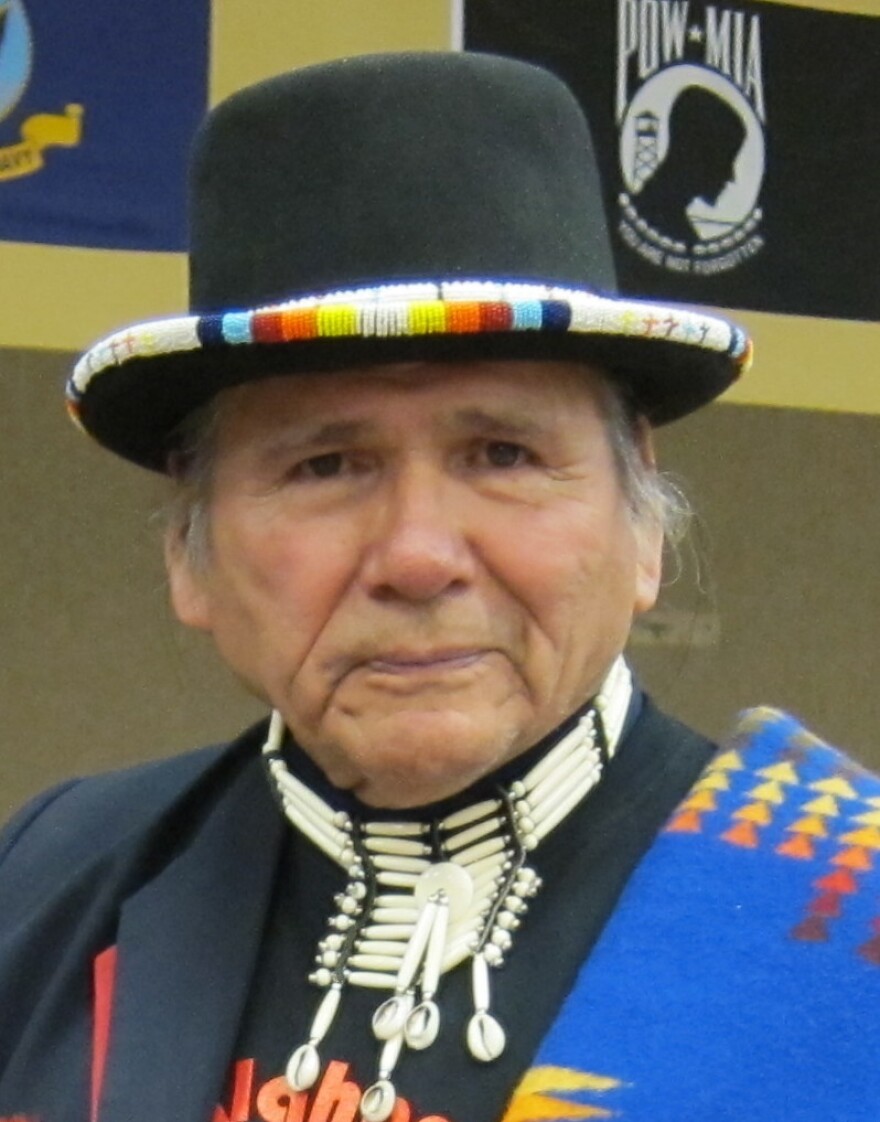As NPR's The Two-Way has just reported, American Indian Movement activist and co-founder Dennis Banks has died at the age of 80. Banks is best remembered for his activism in the 1960s and 70s, especially the occupation of Alcatraz and the 71-day standoff at Wounded Knee, South Dakota.
But not many people know of Dennis Banks the entrepreneur. 16 years ago while I was a News Director with South Dakota Public Radio, I caught word that Banks had launched his own unique enterprise: maple syrup and maple sugar products.
Facebook hadn't quite taken off yet, and the "world wide web" was still pretty basic. Tracking down Banks to his northern Minnesota home on the Leech Lake reservation took repeat calls and emails. Finally, as I was unsure as to whether I'd connect with one of AIM's most recognizable figures, I got a phone call.
"Hello. Is Brian Bull there?" said a gravelly voice.
"Here. Uh...Mr. Banks, I presume?"
I had talked to several other prominent AIM leaders before, including Clyde and Vernon Bellecourt, and Russell Means, who was probably the most fiery of the bunch. My conversation with Banks was casual to the point of feeling like I was talking to an old college classmate. He had no qualms about showing me around his maple trees, as long as I wasn't adverse to "good old Midwestern snow and ice."
So a week later I found myself in waist deep snow, following Banks around his grove of maple trees, all being steadily drained of their sap, as a black dog bounded about us, panting happily. Banks explained how the tapping process worked, showing off the elaborate set-up of tubes and buckets, and eventually the area where the gathered sap was boiled down to create the syrup and sugar.
Did you know that it takes 50 gallons of maple sap to create 1 gallon of syrup? That was my "wow!" moment of the day. Another was how much energy and passion Banks still possessed for a man of retirement age. While he wasn't the high profile figure of Native American activism as he had been decades earlier, he spoke of his support for the next generation of leaders and civil rights activists.
"Now they're not so much doing armed standoffs with the feds," he told me as we thawed out near a wood-burning stove (as close as the dog would allow us). "Now our people...our young people, are learning about treaties, laws, science...they're paving the way for us through education and higher learning. I think that's just great," he said, reaching down to throw another log into the glowing stove.
It was Banks' way of saying while AIM and other groups had made headlines with highly-publicized demonstrations, the new Indian leaders were no less active. Only now change was coming through classrooms and courtrooms, as savvy youth were beginning to hold the U.S. to its treaties and promises. Native people were becoming teachers, professors, lawyers, journalists, scientists, and engineers. While a clutched diploma was not as visually provocative as an upheld rifle at a barricade, it was no less powerful. In fact, probably way more powerful in the long run.
Not that Banks was saying activism was obsolete. For years following Wounded Knee, he engaged in protests including a 2010 event where and and other Ojibwe set their fishing nets out illegally on Lake Bemidji, the day before Minnesota's official fishing season began. And he also visited North Dakota's Standing Rock Reservation last year to show his support for the #NODAPL encampment.
Before I left Banks' home near Federal Dam, Minnesota, he and a couple relatives held a tasting of some maple cream. Raising a spoonful of blueberry maple cream to his lips, he joked, "Okay, better ready that stomach pump!" I sampled some of the other items on the table and conceded that while Banks the AIM activist cut a fiery, courageous figure in the face of opposition, Banks the Entrepreneur made a pretty good batch of syrup, too.
"Thanks for sharing my story, and come back anytime," he told me, as I prepared to return to South Dakota, where he and others made their most famous stand-off. "Blessings to you, yours, and the next generation."
Copyright 2017, KLCC.





